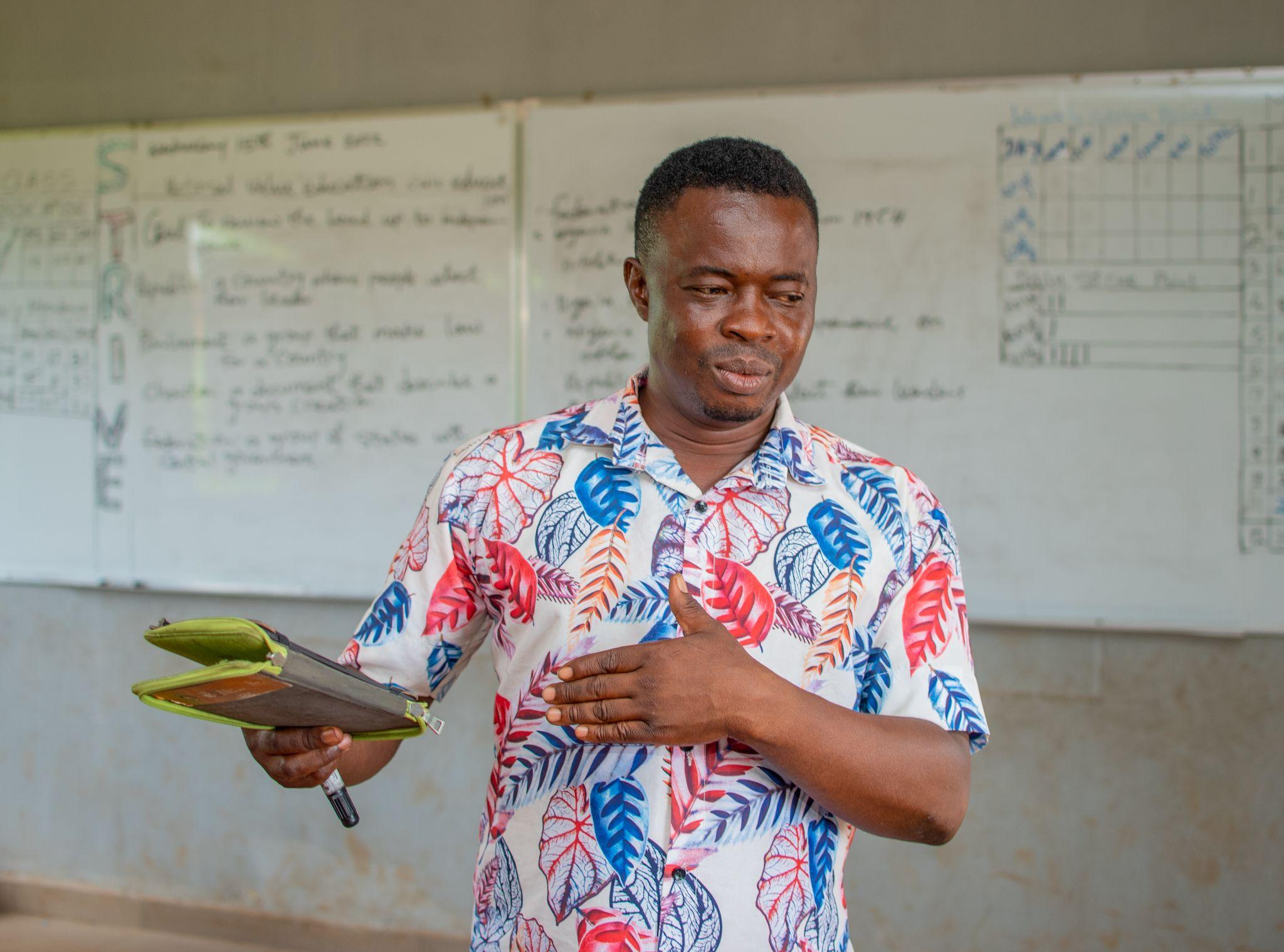Access to basic education is a fundamental right that should be prioritized in the development of the African child. The Edo State government through the EdoBEST methodology, ranked by Nobel Laureate, Professor Michael Kremer as delivering impressive learning outcomes, has taken the lead in the provision of basic education services by using a methodology.
When David Omoruyi received a text message that he was going to be part of the EdoBEST teacher induction training, he smiled because he considered it a prayer answered. He would be joining thousands of others in improving access to basic education through a standardized teaching methodology.
By February 2022, David joined 2,436 other teachers in a training that he describes as “a life-changing experience because it changed my perception of child-handling in the classroom.”
The training ingrained a new methodology in participating teachers. The content included new strategies for classroom management, child handling and motivation, and principles for stakeholder engagement and management.
Above all, it was the launching pad for a whole new method of delivering lessons to hundreds of pupils: highly standardized education.
Last week, a new study released by Nobel Prize winner, Professor Michael Kremer, established that Bridge Kenya Schools (which use the same methodology taught to David and his colleagues in the EdoBEST programme) is delivering exceptional learning outcomes in Kenya.
According to Professor Kremer and his team, the holistic methodology delivers among the largest learning gains ever measured in international education.
The study found that after two years, primary school students in Bridge Kenya schools are nearly a whole additional year of learning ahead of children taught using standard methods.
For early childhood development (ECD) – typically 3 to 5-year-olds – children gain nearly an additional year and half of learning; learning in two years what students in other schools learn in three and a half years.
In academic terms, that method of teaching increased student learning by 1.35 standard deviations for early childhood students and 0.81 standard deviations for primary students.
To put these into context, these effect sizes far exceed the 99th percentile and represent learning gains in the top 1% among large, rigorous studies in emerging markets.
In a continent where little learning is taking place in majority of schools, if replicated at scale across public education systems, the gains would be enough to put African children from underserved communities on track to match their peers in countries with incomes three or four times higher.
In 2020, Professor Emmanuel Nnadozie, the Executive Secretary of the African Capacity Building Foundation (ACBF), an agency of the African Union Commission, in an interview said African countries must pay particular attention to education.
“… there is too much schooling and too little learning,” Professor Nnadozie said.
A report developed by the Brooking Institutes article notes that “If you want a glimpse into Africa’s education crisis there is no better vantage point than the town of Bodinga, located in the impoverished Savannah region of Sokoto state in northwestern Nigeria. Drop into one of the local primary schools and you’ll typically find more than 50 students crammed into a class.
“Just a few will have textbooks. If the teacher is there, and they are often absent, the children will be on the receiving end of a monotone recitation geared towards rote learning.”
This was also obtainable in Edo state before the introduction of EdoBEST. “Teachers were often not in school, most of those that came were engaged in one form of business activity or the other, so they didn’t have much time to teach,” Monika Ugiagbe, a pupil’s mother said.
With the introduction of EdoBEST, mechanisms were put in place for pupil and teacher monitoring, and the technology that underpins the programme is smart enough to notify public school leaders that a teacher was not teaching when that was the case.
“The system has made things easier for the pupils and the teachers. We are enjoying EdoBEST,” David said. “I had taught before now, but this methodology is more attuned to the realities of the moment.
Professor Kremer states that “This study shows that attending schools delivering highly standardized education has the potential to produce dramatic learning gains at scale, suggesting that policymakers may wish to explore the incorporation of standardization, including standardized lesson plans and teacher feedback and monitoring, in their own systems”.
As the world celebrates Day of the African Child, the EdoBEST programme has shown that by prioritizing education in Edo State, it has given the Edo child a new lease of life through improved learning outcomes, accelerated learning and standardized teaching methodology.
This article appeared originally on Champion Newspaper, May 30, 2022


